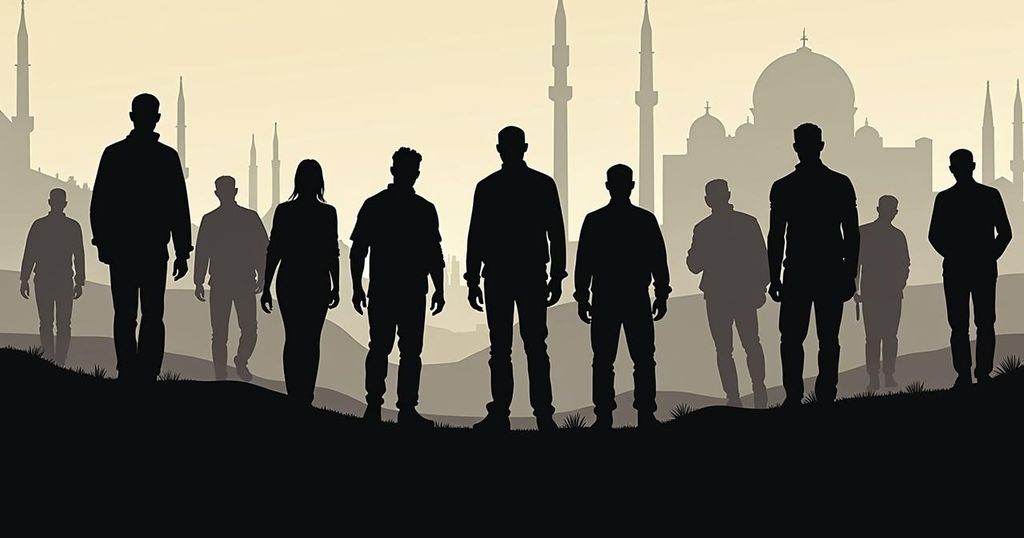Azerbaijan Under Scrutiny as it Prepares for UN Climate Change Talks

Azerbaijan’s human rights record faces scrutiny as the country prepares to host the UN climate talks, with reports indicating a crackdown on dissent, including the arrest of activists such as Anar Mammadli. U.S. lawmakers are urging action to address these abuses, emphasizing the need for inclusive climate negotiations. Azerbaijan defends its record, claiming political arrests are justified and part of a disinformation campaign against the country, even as they maintain significant fossil fuel production amidst calls for climate action.
Azerbaijan is facing significant criticism regarding its human-rights situation as it approaches its role as the host for this year’s United Nations climate change discussions. As reported by Human Rights Watch (HRW) and Freedom Now, there is a concerning trend of intensified suppression against government dissent and civic society elements, particularly targeting ethnic Armenians and civil rights activists. Notably, human rights advocate Anar Mammadli was arrested earlier this year, highlighting the region’s deteriorating human rights climate, especially in the context of its upcoming COP29 climate negotiations in November. Moreover, a coalition of U.S. lawmakers has implored Secretary of State Antony Blinken to advocate for the release of political prisoners in Azerbaijan, citing alarming human rights violations, including arbitrary detentions and unlawful killings. Such concerns were exacerbated by allegations of ethnic cleansing in the predominantly Armenian region of Nagorno-Karabakh in the previous year. The U.S. legislators emphasized the significance of the COP29 conference as a key opportunity for advancing energy security in the region while questioning Azerbaijan’s record of using its oil and gas revenues responsibly, given the country’s substantial fossil fuel production. Activists have underscored the danger posed to meaningful climate negotiations when civic freedoms are restricted, as articulated by Myrto Tilianaki of HRW, who asserted that the exclusion of marginalized voices from climate discourse would be detrimental to effective policy-making. Responding to these critiques, Azerbaijan’s embassy in Washington dismissed the claims as unfounded, asserting that the nation is engaged in a concerted disinformation campaign against it. According to the HRW and Freedom Now report, the increased arrests of activists and journalists are mostly linked to restrictive laws targeting non-governmental organizations (NGOs). The report suggests that these arrests are politically driven and conform to a longstanding pattern of suppression against free speech and assembly in Azerbaijan. Allegations against those arrested often fall under dubious charges, including but not limited to smuggling, illegal entrepreneurship, and even extremism, positioning these actions as governmental means to silence dissent. It is noteworthy that Azerbaijan was selected as the host for this year’s climate summit after opposition from Russia to European Union candidates, which adds a layer of political complexity to the situation. While global consensus pushes for a transition away from fossil fuels, Azerbaijan maintains that the dual pursuit of fossil fuel production and climate objectives is feasible. The country anticipates an increase in its gas output over the next decade, emphasizing its strategic role in European energy partnerships despite ongoing criticisms of governance and human rights practices.
Azerbaijan is a strategically located country on the Caspian Sea, bordering prominent nations such as Russia, Iran, and Armenia. Its abundant natural gas and oil resources significantly influence the national economy and situate it within regional and global energy discussions. Despite being chosen to host significant climate negotiations, Azerbaijan’s history of imposing restrictions on civil society raises concerns regarding its commitment to human rights and inclusive decision-making, especially in light of criticisms regarding ethnic tensions and governance approaches. The country has faced accusations of mismanagement of oil revenues and state-sanctioned suppression of dissidents, particularly against critics of the current regime and individuals advocating for civil liberties.
In summary, Azerbaijan’s upcoming hosting of the UN climate change talks is marred by a backdrop of serious human rights violations, notably against civil society and ethnic Armenian populations. Reports from credible organizations raise alarms regarding political suppression, with activists facing arbitrary arrests and politically motivated charges designed to stifle dissent. While U.S. lawmakers push for a recognition of human rights as integral to the global climate dialogue, Azerbaijan insists on its role as a responsible member of the international community, disputing claims of abuses and framing the criticisms as part of a broader disinformation strategy. The resolutions made at the COP29 summit could be fundamentally impacted by who is allowed to participate in the discussions, highlighting the intersection of human rights and climate policy.
Original Source: www.wprl.org








